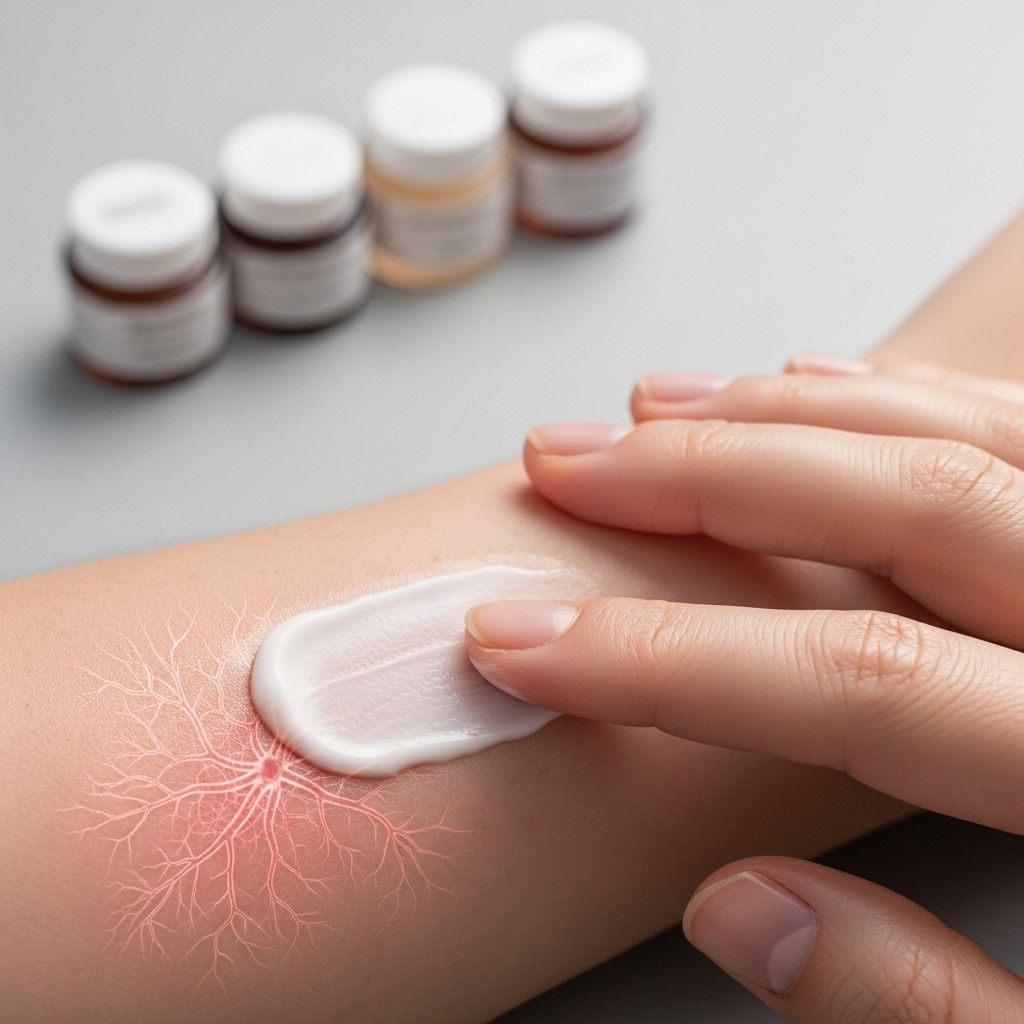Skincare Ingredients That Block Circulation: What to Avoid
Look for gentle formulations that support healthy blood flow and a radiant complexion.

Introduction to Skincare Circulation Concerns
When it comes to skincare, most of us focus on ingredients that improve skin appearance and health. However, it’s crucial to consider how these ingredients might affect circulation. Some skincare components can inadvertently impede blood flow, which is vital for delivering oxygen and nutrients to the skin. This article will delve into the types of skincare ingredients that may block circulation and provide guidance on how to avoid them.
Understanding Skin Structure and Circulation
The skin is composed of several layers: the epidermis (the outermost layer), the dermis (where blood vessels, hair follicles, and sweat glands reside), and the hypodermis (the deepest layer). The dermis plays a significant role in circulation, as it contains blood vessels that supply the skin with oxygen and nutrients. Skincare ingredients can penetrate these layers to varying degrees, depending on their molecular size, lipophilicity, concentration, and formulation.
Factors Influencing Ingredient Absorption
Several factors affect how well skincare ingredients penetrate the skin and potentially impact circulation:
- Molecular Size: Smaller molecules have a higher chance of penetrating the stratum corneum, the outermost layer of the epidermis.
- Lipophilicity: Ingredients that are lipophilic (oil-loving) integrate more easily with the skin’s lipid-rich environment, facilitating deeper penetration.
- Concentration: Higher concentrations of active ingredients can lead to increased absorption.
- Formulation: The type of product (e.g., serum, cream, ointment) influences how effectively ingredients are delivered.
- Skin Condition: Compromised skin barriers (e.g., dryness, irritation) may allow for greater penetration.
- Application Technique: Techniques like gentle massage can enhance absorption by increasing blood flow and contact time.
Ingredients That May Affect Circulation
While specific ingredients are not typically categorized as “circulation blockers,” some can cause irritation or affect skin health in ways that might indirectly impact circulation:
- Harsh Exfoliants: Overuse of chemical exfoliants like AHAs (glycolic acid, lactic acid) and BHAs (salicylic acid) can irritate the skin.
- Hydroquinone: Known for skin-lightening, it can be harmful if used improperly and is regulated in many countries.
- Artificial Fragrances: These can cause skin irritation, potentially disrupting skin health.
- Mineral Oils: While not typically harmful, they can clog pores if used excessively, which might indirectly affect skin circulation.
Skincare Ingredients That Can Enhance Circulation
On the other hand, some ingredients can improve circulation, promoting healthier skin:
- Niacinamide: Known for its skin-strengthening properties, it can also improve skin circulation.
- Peptides: These can stimulate collagen production and potentially enhance blood flow to the skin.
- Antioxidants (Vitamin C, E): These protect the skin from oxidative stress, which can improve overall skin health and circulation.
Strategies for Safe Skincare Practices
To minimize the risk of skincare ingredients affecting circulation, consider the following strategies:
- Read Labels Carefully: Be aware of the ingredients in your skincare products and avoid those known to cause irritation or be harmful.
- Use Gentle Products: Opt for products formulated for your skin type and condition.
- Avoid Over-Exfoliation: Use chemical exfoliants judiciously to prevent skin irritation.
- Consult a Dermatologist: If you have concerns about specific ingredients or skin reactions, seek professional advice.
Frequently Asked Questions (FAQs)
Q: Can skincare ingredients really affect circulation?
While skincare ingredients are generally not considered direct circulatory blockers, some can cause irritation that might indirectly affect skin health and circulation.
Q: What are some common skincare ingredients to avoid if I have sensitive skin?
Ingredients like artificial fragrances, hydroquinone, and harsh chemical exfoliants can irritate sensitive skin and should be used with caution.
Q: How can I ensure my skincare routine supports healthy circulation?
Use products with gentle formulations, avoid over-exfoliation, and incorporate ingredients known to improve skin health, such as antioxidants and peptides.
References
- https://www.scmp.com/lifestyle/health-beauty/article/2096488/can-ingredients-skincare-products-enter-bloodstream-and
- https://renunaturals.com/blogs/news/how-skincare-ingredients-penetrate-your-skin-and-why-it-matters
- https://labmuffin.com/the-60-of-products-absorb-into-your-bloodstream-myth/
- https://pmc.ncbi.nlm.nih.gov/articles/PMC11381309/
- https://imageskincare.com/blogs/skincare-blog/10-ways-to-increase-skincare-penetration
- https://www.megawecare.com/good-health-by-yourself/skincare/toxic-ingredients-to-avoid-in-skincare
- https://www.dermstore.com/blog/top_ten/weird-skin-care-ingredients/
Read full bio of Sneha Tete












